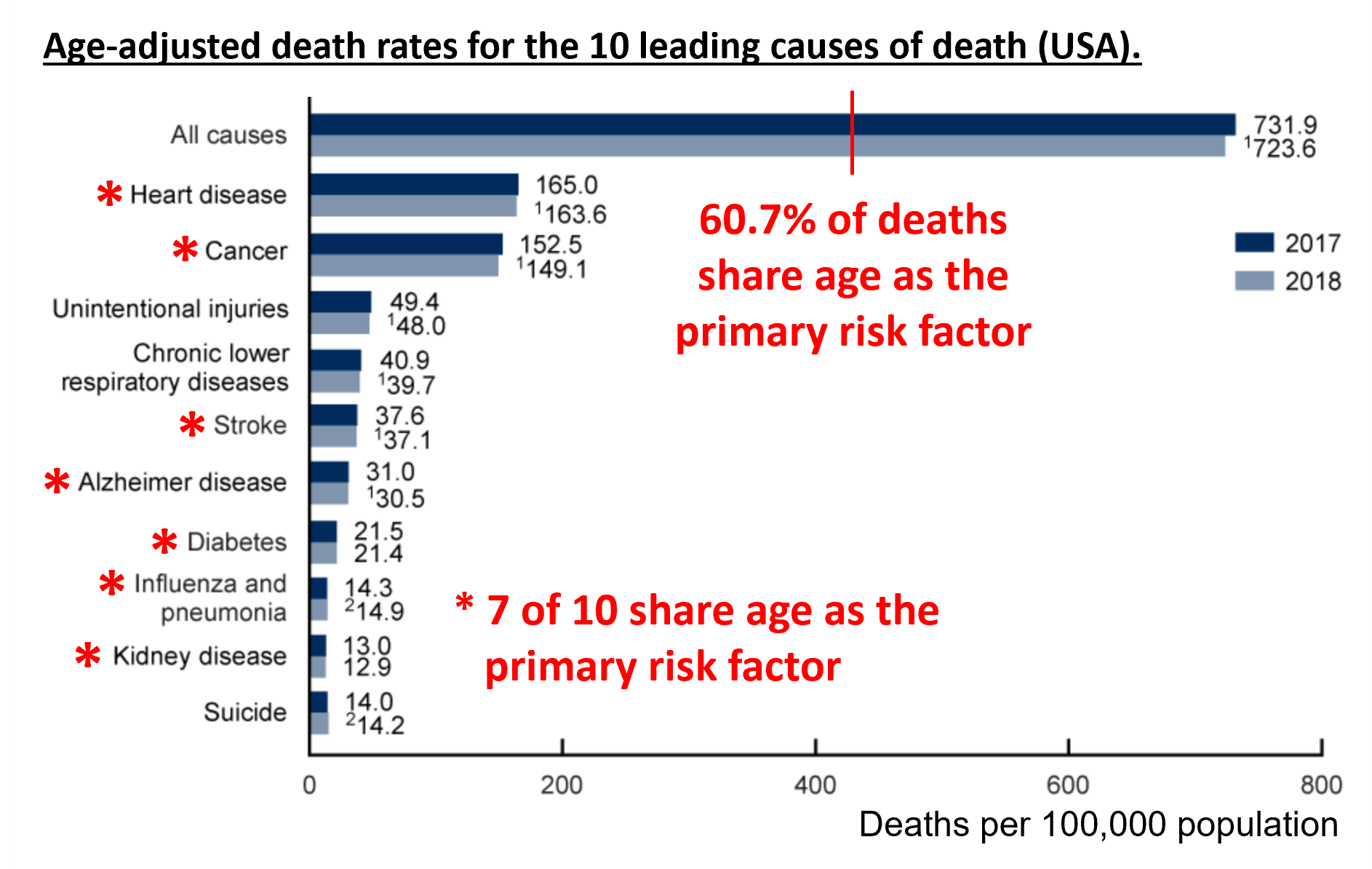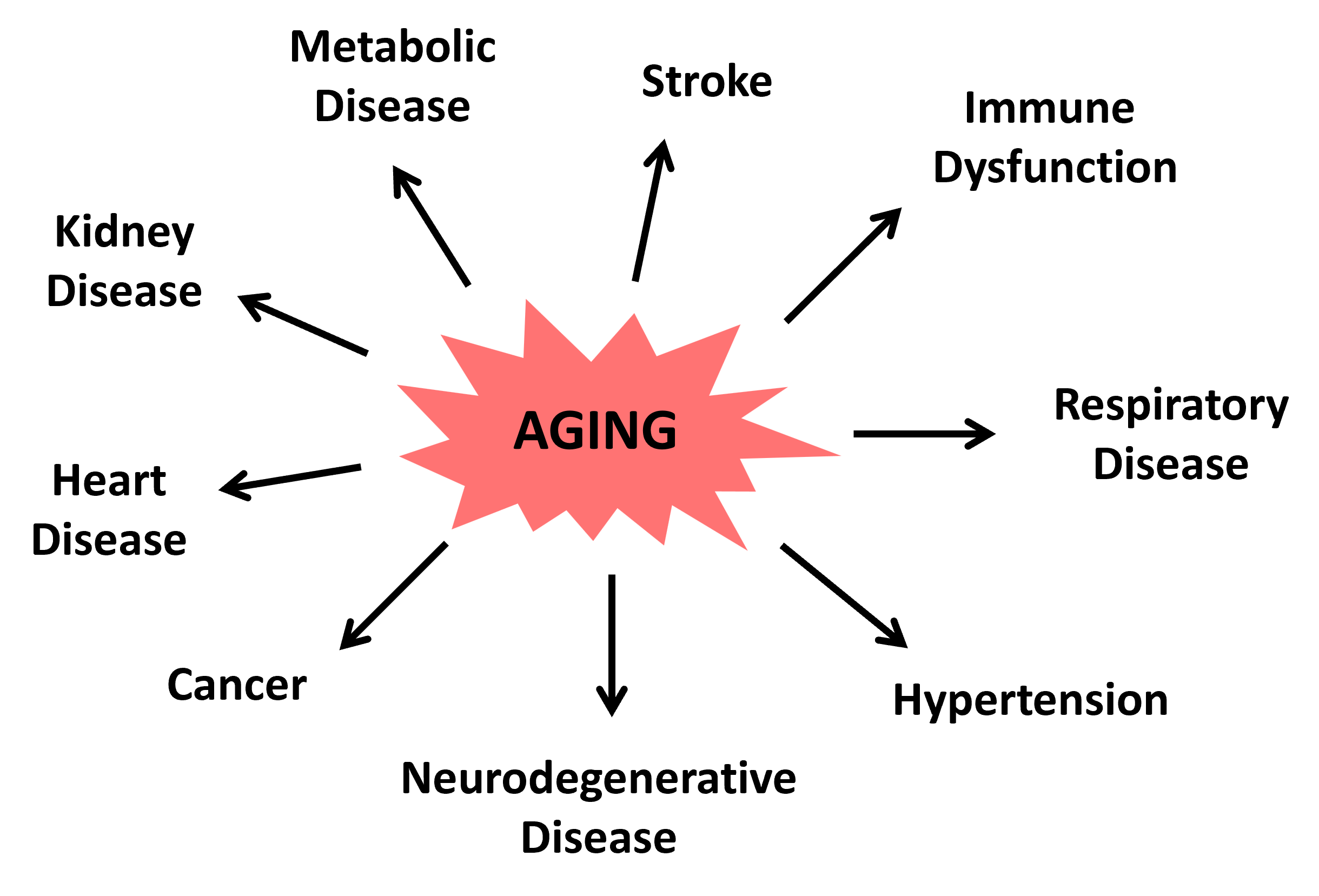
Welcome to the Sutphin Lab
Why study aging?

We are focused on developing therapeutic strategies that target the molecular causes of aging to optimize healthy human lifespan. Biomedical science typically seeks to understand and target the mechanistic underpinnings of specific diseases, and develop therapies targeting those mechanisms in patients that have received a diagnosis. This reactive approach to health has clearly proven a productive strategy, particularly for acute maladies that tend to impact health earlier in life. It has been less successful at addressing the chronic, late-life conditions that are dominant today. Can we take a more proactive approach that can delay the onset of, or even prevent, broad categories of chronic disease?
Age is the primary risk factor for 7 of the 10 most prominent diseases in our society today, which account for ~60% of all deaths. These diseases become ever more prevalent as our population becomes progressively older. As an alternative to developing disease-specific treatments, therapeutic strategies that target the molecular processes that drive aging have the potential to extend healthy human lifespan and treat, delay, or prevent multiple classes of age-associated disease simultaneously.
In the Sutphin Lab we study the fundamental biology of aging. Our goal is to understand the molecular processes that drive aging and leverage this understanding to develop clinical strategies that optimize health and increase longevity. Aging is characterized by a functional deterioration across the many cell and tissue types in our bodies, ultimately resulting in mortality. This deterioration is driven by a complex interplay between many molecular processes that is influenced by both our genetic make-up and our environment.

We use a combination of systems and comparative genetics to identify novel genes that affect aging, characterize their role in determining longevity, and understand how they interact with both known aging processes and environmental variables. We approach these problems using complementary tools in C. elegans, mice, and cell culture to approach these questions. We also have a strong interest in developing new methods for high-content drug and genetic screening in the context of aging. Using these tools, we aim to identify key genes and molecular processes that can be clinically manipulated to fundamentally slow the aging process and maintain health into old age.
Explore our research and community
Our science
Explore our current research focused on understanding the mechanisms of aging, advancing new anti-aging therapeutics, and developing high-content methodology for drug discovery.
Our people
We have a vibrant community of students, postdocs, and technical staff. Find us here.
Join us!
We are always looking for talented and passionate scientists interested in basic and translational aging science to join our team. Check out current positions here.



